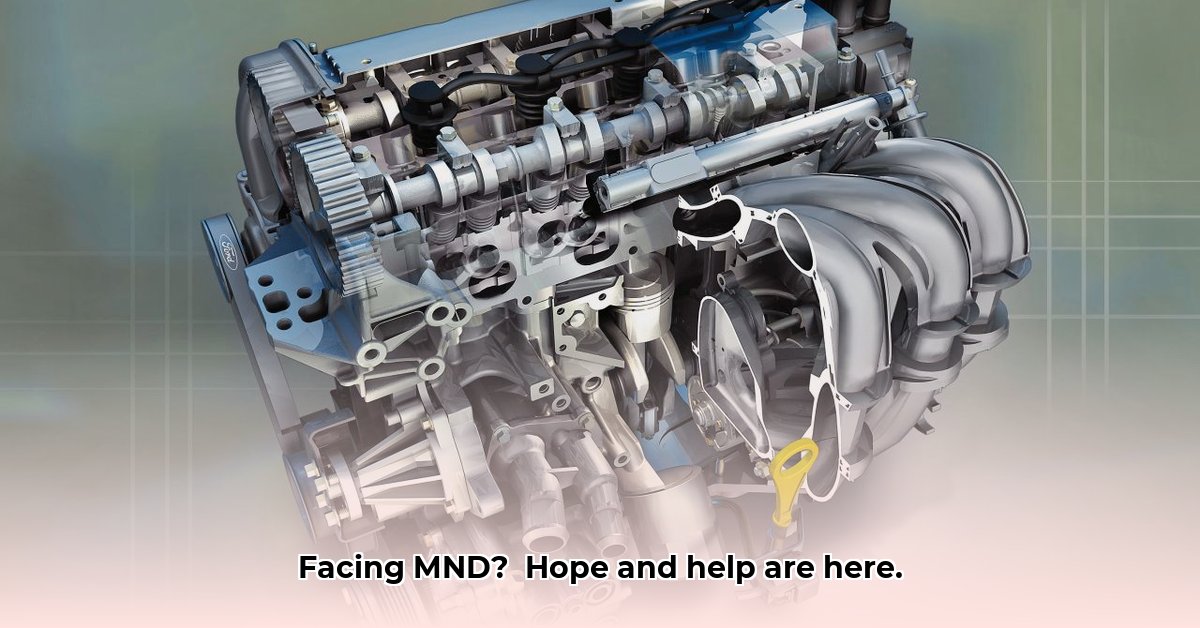
Understanding Motor Neuron Disease (MND)
Motor Neuron Disease (MND), ek siekte wat jou senuweeselle aanval, is 'n groep van siektes wat die senuweeselle wat jou spiere beheer, aantas. Your brain sends signals to your muscles to move, but in MND, these signals get lost or mixed up, causing muscle weakness and eventually paralysis. It's a challenging condition, but understanding it is the first step towards managing it effectively. This isn't just one illness; several types exist, each with its unique characteristics and progression. Let's explore them.
Different Types of MND: A Closer Look
MND isn't a single entity; it's a collection of related conditions affecting motor neurons. Each type presents a unique set of challenges:
Amyotrophic Lateral Sclerosis (ALS): Die mees algemene tipe. ALS damages both upper and lower motor neurons, leading to widespread muscle weakness and wasting. Think of it as a domino effect, with the breakdown spreading throughout the system.
Primary Lateral Sclerosis (PLS): Primarily affects upper motor neurons, resulting in stiffness and clumsiness. It's more focused, like a specific part of the system malfunctioning.
Progressive Bulbar Palsy (PBP): Impacts the muscles involved in speech and swallowing. This poses significant challenges to communication and nutrition.
Progressive Muscular Atrophy (PMA): Affects lower motor neurons, causing progressive muscle weakness and wasting. This directly impacts muscle function.
Spinal Muscular Atrophy (SMA): Often genetic, frequently diagnosed in infants and young children.
Understanding the specific subtype is crucial for targeted management and support. Each type requires a bespoke approach, tailored to the individual's needs.
The Science Behind MND: A Simplified Explanation
MND occurs because motor neurons – the cells transmitting messages from your brain to your muscles – die off. Die rede hiervoor is nog onbekend, although ongoing research is continuously exploring potential causes. This communication breakdown leads to muscle weakness, wasting, and ultimately, paralysis. It's vital to remember that despite the complexity of the disease, advancements are continuously being made in understanding and managing the condition.
Managing MND: Practical Strategies for a Better Life
While there's currently no cure for MND, numerous strategies significantly improve quality of life. A multidisciplinary approach is key:
Medication: Drugs may help manage symptoms like muscle spasms and stiffness. *Hierdie kan verskil afhangende van die tipe MND. *
Physiotherapy: Regular exercise maintains muscle strength and flexibility, slowing down the progression of muscle deterioration.
Occupational Therapy: Helps adapt daily routines to maintain independence. This might include assistive devices for eating or other daily tasks. Dit verseker dat jy jou daaglikse lewe so normaal as moontlik kan aanhou lei.
Speech Therapy: Assists with communication and swallowing difficulties. Crucial support for preserving effective communication.
Respiratory Support: May involve breathing exercises or, in advanced stages, a ventilator. This can help manage breathing issues as the disease progresses.
Assistive Technology: Wheelchairs, communication devices, and other aids enhance independence. This can improve quality of life and ensure daily functions can still be executed.
Palliative Care: Focuses on pain and symptom management, ensuring comfort and dignity. Hierdie is nie opgee nie, maar 'n manier om jou lewensgehalte te verbeter.
The best management plan is bespoke – working closely with your healthcare team to create a personalized approach is vital.
Research and the Future of MND Treatment
Extensive research is underway, providing hope for future treatments. This includes:
Gene therapy: Targeting the root genetic causes of certain MND subtypes.
Drug development: Discovering new medications to slow or halt disease progression.
Improved assistive technologies: Further enhancing quality of life and independence.
Better diagnostic tools: Enabling earlier and more accurate diagnosis, allowing for earlier intervention and treatment.
Although advances are being made, it’s crucial to have realistic expectations and continue supporting further research and development. Continuous funding and advocacy are essential for breakthroughs in treatment and cures.
Finding Support: You Are Not Alone
Living with MND presents unique challenges, impacting not only the patient but also their family and caregivers. It’s crucial to understand that you are not alone in this journey. Several resources are available:
Support groups: Connecting with others facing similar experiences provides invaluable emotional support and practical advice.
Patient advocacy organizations: These organizations offer information, advocacy, and resources.
Clinical trials: Participation in clinical trials contributes to research progress and offers access to potentially life-changing treatments.
Remember, maintaining a positive outlook and securing the necessary support is crucial for navigating this challenging illness. Embrace the support available and find strength in the community around you. Jy is nie alleen nie.